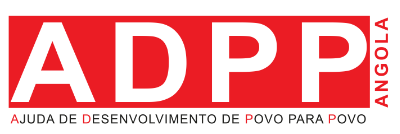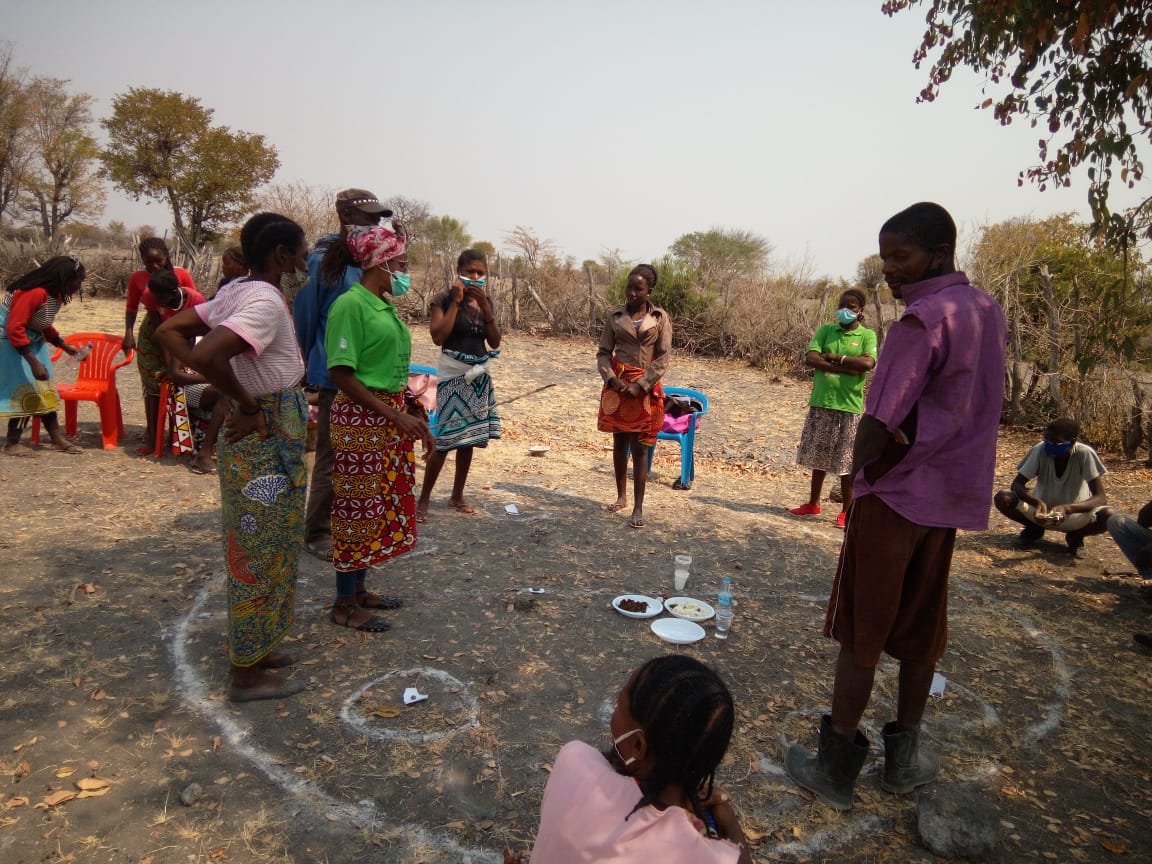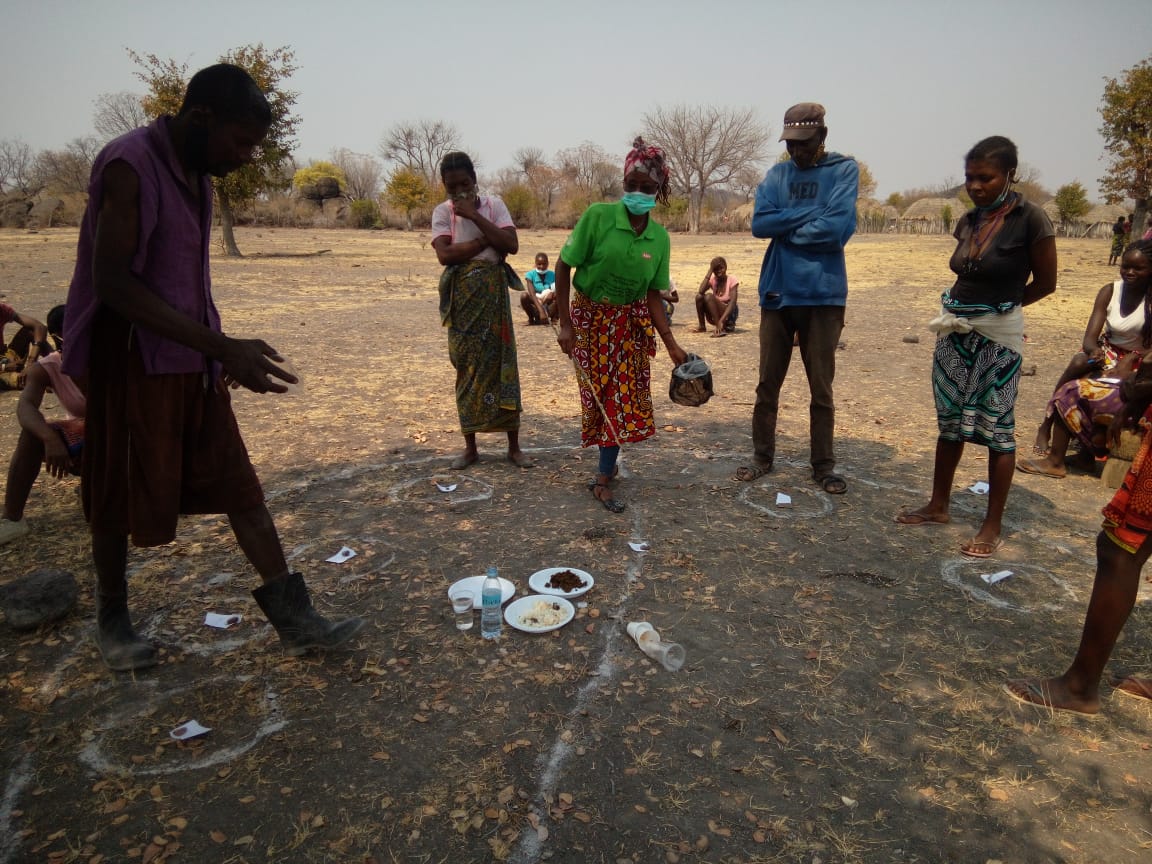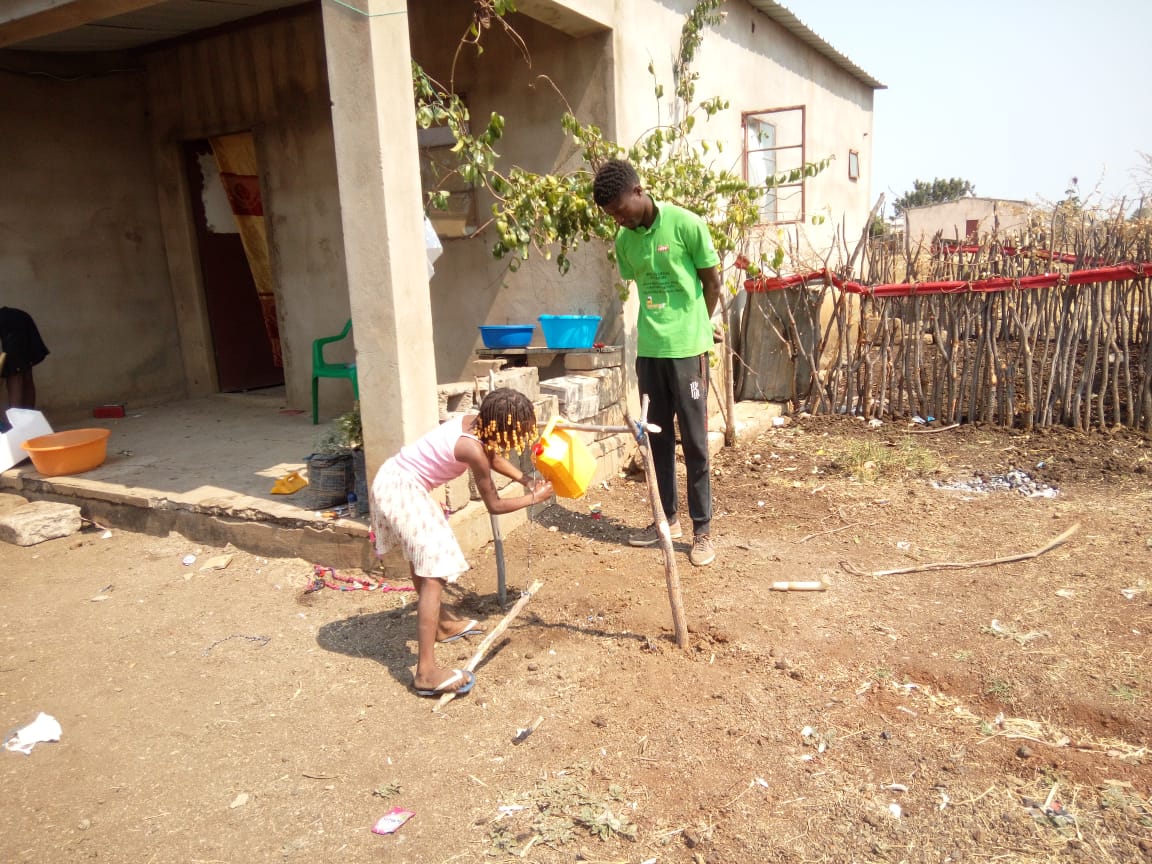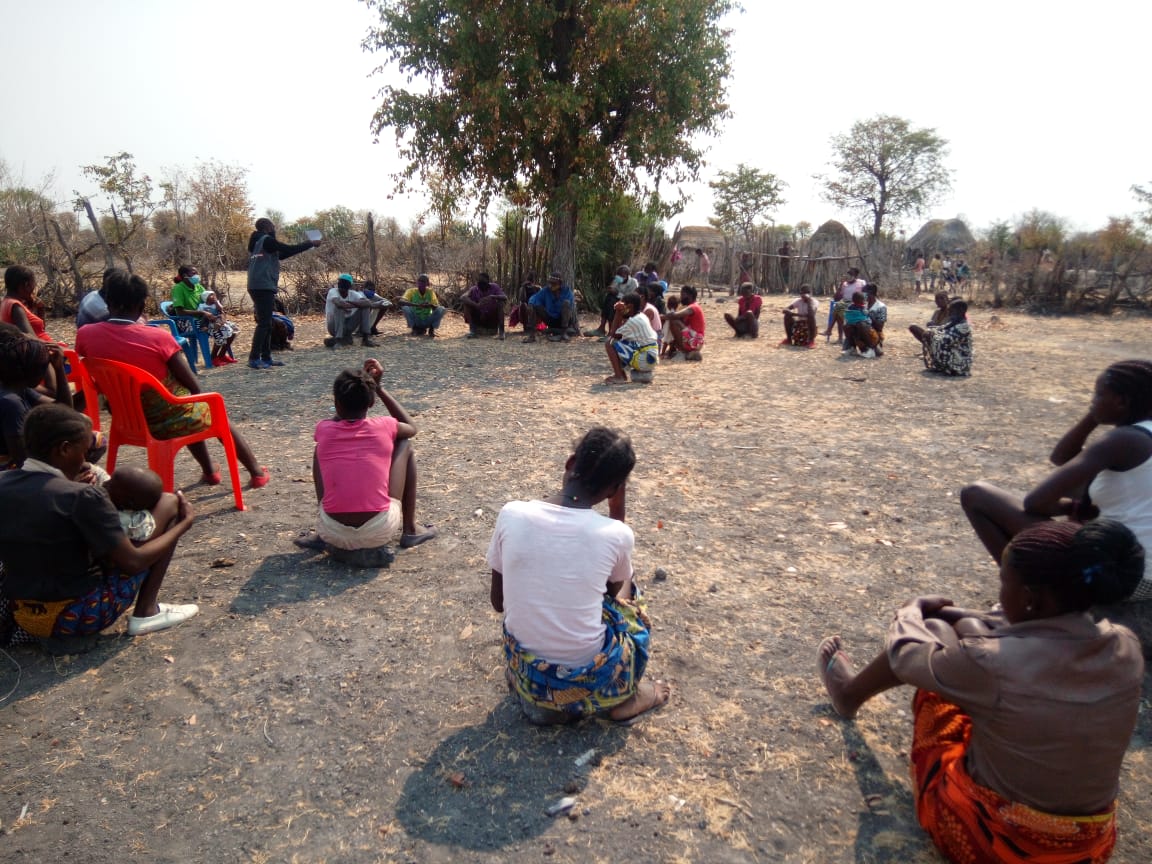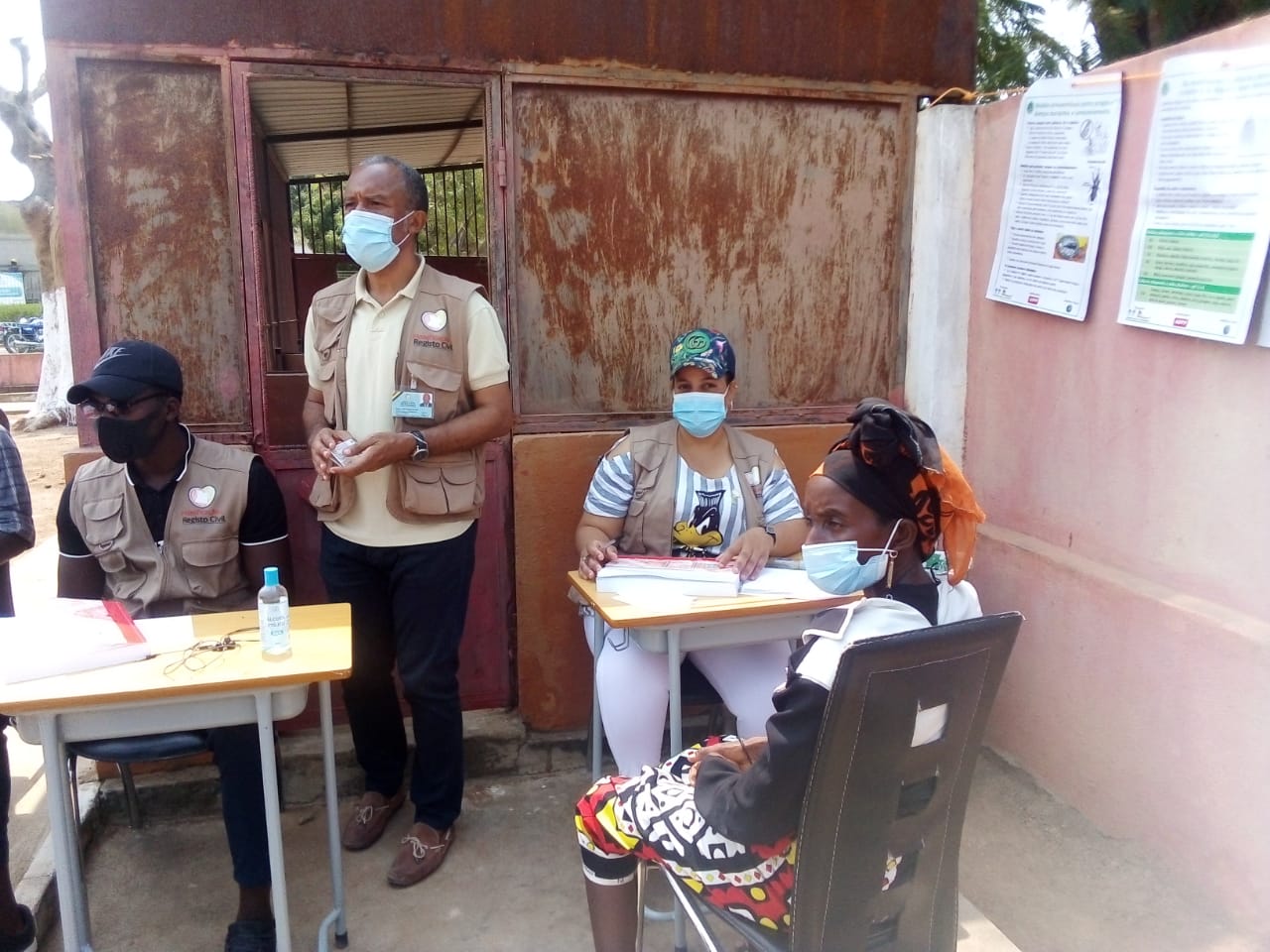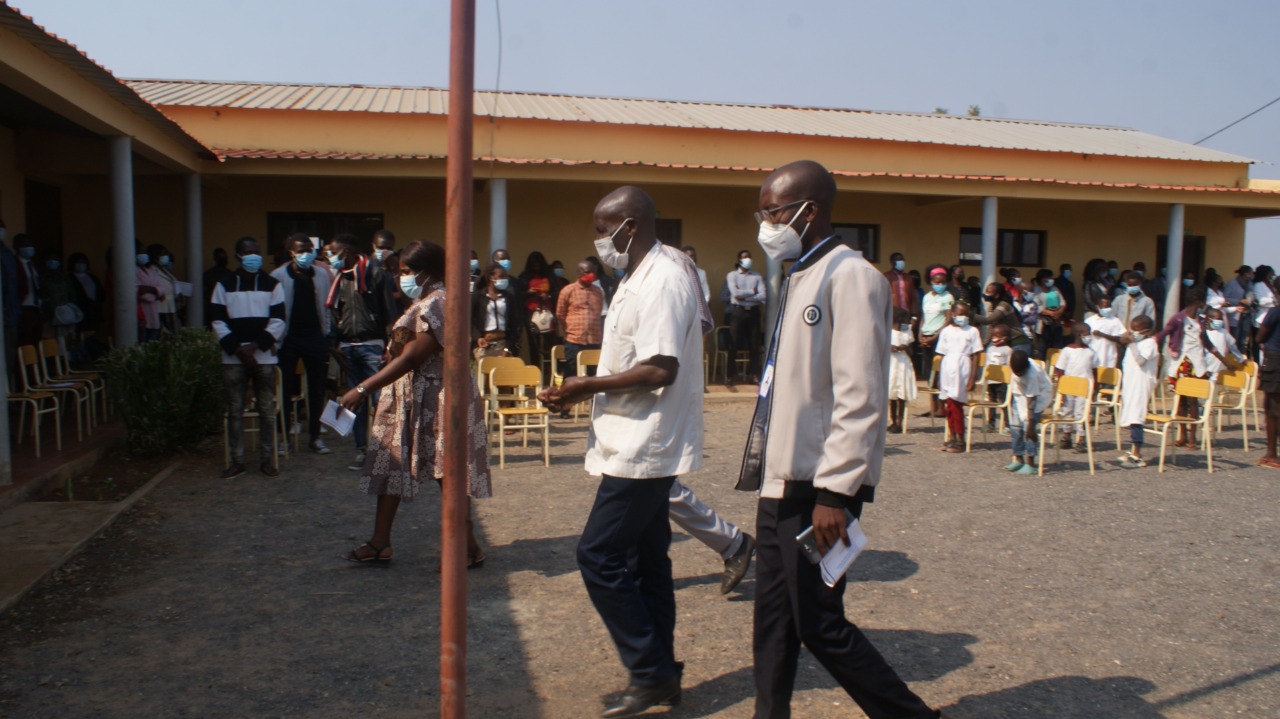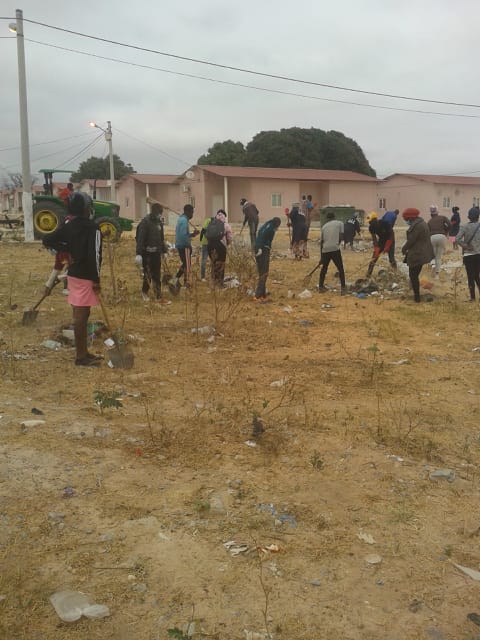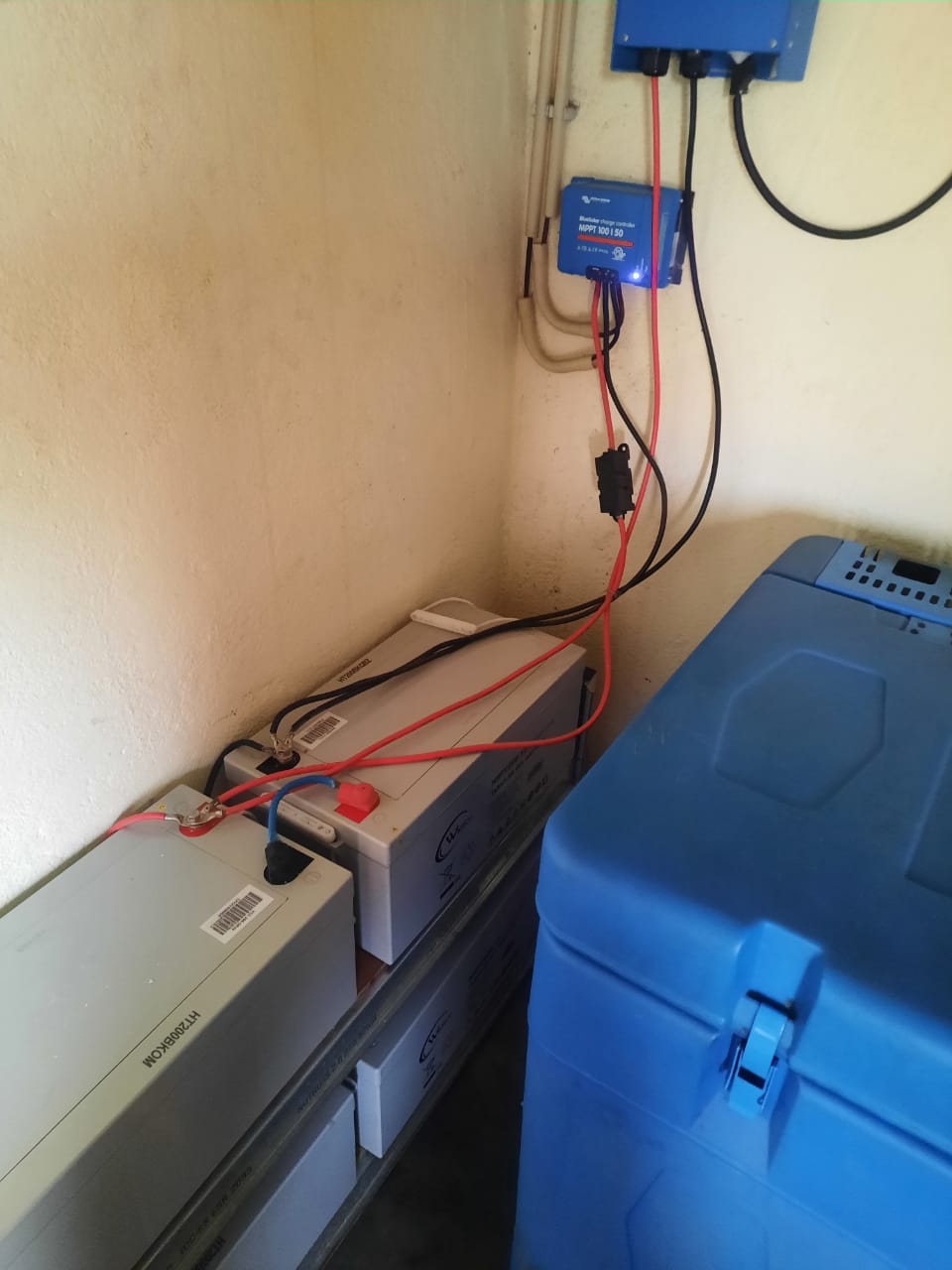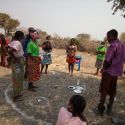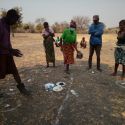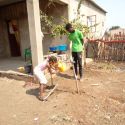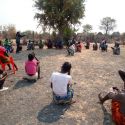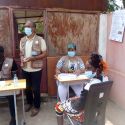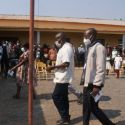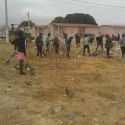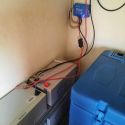Integrated Community Development works with whole communities to addresses a wide variety of the issues that affect them. The basis of ADPP’s project in Huíla and Namibe is drought and poverty among vulnerable populations, which is being tackled through the drilling of wells, the installation of solar energy and training in conservation agriculture, but with an end goal of self-sustainability, these populations require solid organization and many more tools, more knowledge and more skills to maintain development.
Community led total sanitation is one such component, and very much in focus in September. Reducing the incidence of illness caused by a lack of basic sanitation is being achieved through the construction of latrines that is helping eliminate open air defecation. Age is no limit, nor is gender, as demonstrated by a senior lady in the village of Kacu-1, in Gambos Municipality (PHOTOS) who is preparing to build a latrine for herself and her family. Complementing the latrines, and a key measure for preventing the spread of disease, are simple hand washing systems known as tippy taps. They are low cost, simple to use, more hygienic than sharing the same basin, and require little water. Even the most recent villages to join the project learn about community led total sanitation from the very start, as in the case of Kahila where a ceremony on 23 September to celebrate the event included demonstrations on sanitation.
Elsewhere at the project, September is proving to be a very busy month with harvesting from vegetable gardens, construction of firewood-saving stoves, actions against Covid-19 at schools, Covid-19 vaccinations for the community health agents, major cleaning actions in villages and at town markets, maintenance of and improvements to solar energy systems, campaigns to register births, agricultural training including practical lessons on organic compost, special attention to families most affected by drought.
September is also an auspicious month, with the celebration of World Literacy Day at the project in Gambos, combined with the official launch of the Women’s Economic Empowerment programme that is benefiting female farmers at all ADPP Angola’s agricultural projects.
Community led total sanitation in Kacu-1, Gambos.
After the initial training session on the dangers of open air defecation, this lady decided to build her own latrine.
Creating the hand-washing habit.
A monthly meeting with a presentation of plans for the coming period for Farmers Field School members in Caco, Gambos.
Tables set up ready to inform community members about how to register births and how to get a national ID card.
Opening of the school year at School nr. 707, Rio de Area in Tchibemba, Gambos. The Department of Education counts on ADPP's support in the fight agains Covid-19 and other diseases.
The projecto working with the local administration on a community cleaning campaign.
New batteries mounted at the Ndongue health post by the firm Green América
